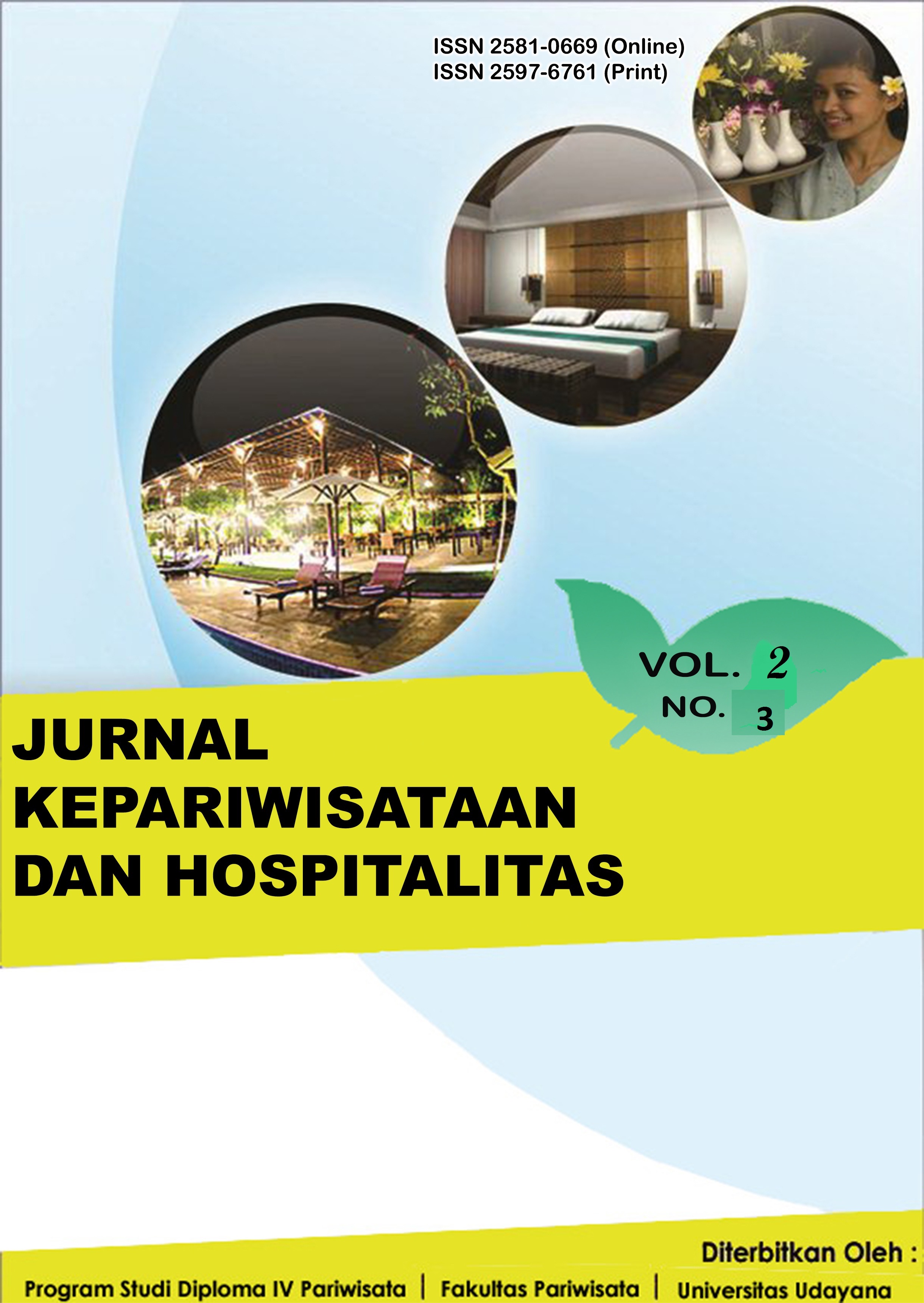Study of Training Formulation to Improve Quality Service at Four Points by Sheraton Bali Seminyak
Abstract
The staff was the less-motivated to follow a training given by the management of Four Points by Sheraton Bali. It could be seen on the guest voice score that has increased and decreased; therefore it proved that the service at Four Points by Sheraton Bali Seminyak was not optimal. The aims of this research were to find out the training formulation to improve the service quality at Four Points by Sheraton Bali Seminyak and to identify the service improvement before and after implementation of training formulation study at there.
The data was collected through observation, unstructured interviews, questionnaire, documentation, and library research. The sample was determined by quota sampling and purposive sampling techniques. The respondents were 84 people and data was analyzed descriptively qualitative and.
The results of this study show that 26 statements about the training formulation are only 20 statements that match the wishes of employees. The statement was made into a training formulation. Training in October and November to get results that is from 8 categories of service quality score increased but there are 2 categories that decreased in November. The training formulation will be even better if the training formulation is always in renewal again as per the employee's desire and provide more training for scoring category score which still decrease in Guest Voice.













